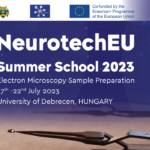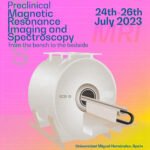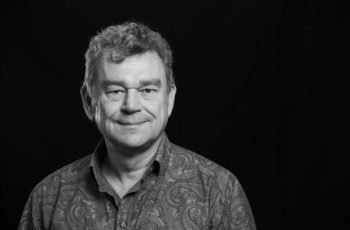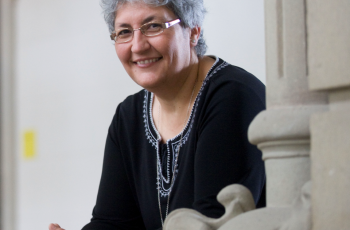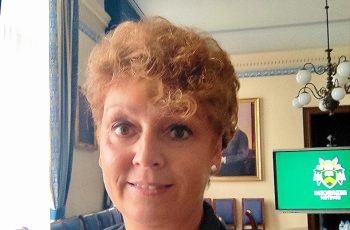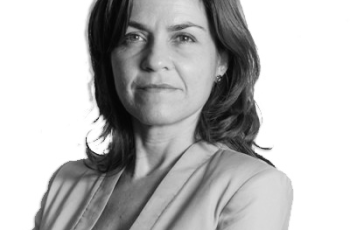In the faces of NeurotechEU series, several people in the NeurotechEU alliance are interviewed to learn about their experiences and insights.
Erika Dabhilkar is the head of the International Relations Office at Karolinska Institutet. Recently awarded the older Gustav Adolf medal in silver by the University Board of Uppsala University for her key role in finding and strengthening international collaborations in research and education, she has many years of experience in the internationalization of higher education. With a wealth of experience garnered during her tenure at Uppsala University, she brings a unique perspective to her current role. With a particular focus on NeurotechEU, Erika strives to create a thriving environment fostering collaboration, innovation, and impactful outcomes.
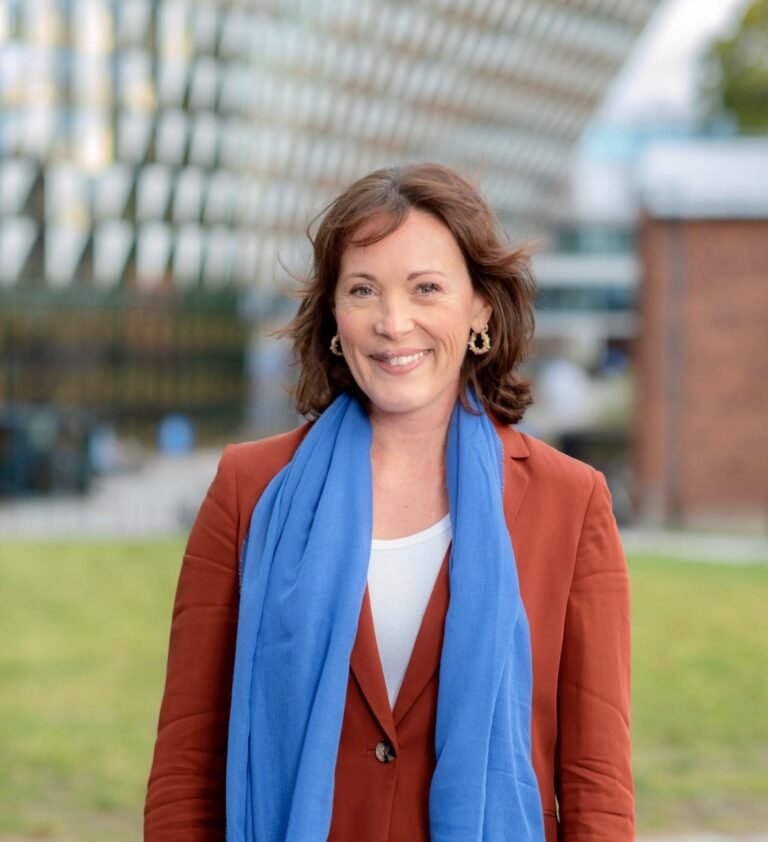
It's also about the invaluable network you'll build during your NeurotechEU degree. This network could connect you with industry professionals and potential collaborators who can shape your future, whether you pursue a career in academia or venture into other fields.
Erika Dabhilkar
What do you think is the most exciting aspect of the NeurotechEU alliance?
I think the initiative’s most thrilling aspect is the Commission’s invitation to think creatively about the university of the future. It is an opportunity for us to contemplate the future of Europe, which I believe we have not devoted enough time to. Although currently, we are understandably caught up in the existing administrative constraints and obstacles rather than envisioning new concepts and devising innovative solutions, I believe, is the most exciting part of the endeavor.
What can be the most exciting part for students?
I believe it lies in the opportunity to receive comprehensive support as a student, especially within neuroscience, neurotechnology, or any of the eight dimensions we offer. Imagine having access to top-notch modules, exceptional teachers, dedicated supervisors, and renowned professors throughout your education. But it doesn’t stop there. It’s also about the invaluable network you’ll build during your NeurotechEU degree. This network could connect you with industry professionals and potential collaborators who can shape your future, whether you pursue a career in academia or venture into other fields. Of course, aside from meeting like-minded individuals your age, sharing common interests, and forging lasting friendships, the possibilities are endless. With meaningful connections that transcend borders, we can all shape a future where collaboration knows no borders and joint efforts lead to transformative solutions for future challenges.
What can be the most specific challenges?
One of the significant challenges we face is the administrative obstacles that occasionally hinder our progress. The misalignment of academic calendars across Europe poses difficulties for individuals to participate actively. Additionally, the structured and rigorous curricula at Karolinska Institutet sometime limit flexibility within the first and second study cycles. It is not until the third cycle, as a PhD student or pursuing a doctorate, that more flexibility is available to engage in international activities more freely.
You are in the city of the Nobel Prize at one of the world’s best universities working around brilliant researchers and professors. It’s a very inspiring environment. What does it mean for you to work in KI?
Definitely! It’s an environment that attracts exceptional minds and fosters intellectual growth. But beyond the outstanding individuals, KI holds a more profound significance.
While KI is a single-faculty university focusing on improving health for all, the concept of health encompasses numerous dimensions. It may appear as a small, close community from the outside, but once you step inside, you realize the vast contributions made towards this shared goal. Being a part of KI means having the opportunity to collaborate and contribute to the pursuit of a better future – and it is truly mind-blowing.
How can NeurotechEU stimulate out-of-the-box thinking and foster creativity to generate innovative solutions for various challenges?
One way NeurotechEU can achieve this is by providing a structured educational program that offers cutting-edge expertise in specific areas. Students can utilize this structure to expand their networks and establish valuable academic connections. As we strive to attract and retain the best talents, NeurotechEU creates an enticing environment for students, teachers, professors, and staff.
NeurotechEU opens doors for students to connect with top European institutions, depending on their chosen path. It offers an integrated and secure environment where students can progress their studies without prolonging their academic journey. This experience would enrich them on multiple levels, both academically and personally, making it a compelling opportunity.
To further enhance the appeal of NeurotechEU, we must highlight its unique advantages compared to other bilateral international partnerships. It is crucial to emphasize the distinctiveness of the Neurotech way and articulate the specific benefits that make it a standout choice for students, professors, and staff. We must focus on this area to attract and engage the desired cohort.
By capitalizing on these strengths and addressing the value proposition of NeurotechEU, we can foster a vibrant and dynamic community that encourages creativity, cultivates innovation, and drives forward-thinking solutions to shape the future.
What advice would you give someone working at another university in a similar position as yours in NeurotechEU?
Firstly, it is crucial not to underestimate the significance of fostering positive relationships within the team. When collaborating, seek structures encouraging people to meet, interact, and socialize. Creating a sense of camaraderie within the network, including directors and all those involved, is paramount. Be generous and patient, allowing time for individuals to become acquainted and, hopefully, develop mutual likability.
Additionally, securing co-financing is essential, as relying solely on funds from the EU may not be sufficient. Recognize the need for alternative sources of financial support to sustain the project effectively.
Invest time and effort in genuinely getting to know one another. Building solid interpersonal connections among team members is vital, as it fosters a positive working environment and benefits all aspects of the work. While embarking on such a significant endeavor, particularly during challenging times like a pandemic, it is essential to allocate dedicated meeting opportunities for the consortium to gather and discuss. In today’s digital era, we have numerous exciting opportunities for international cooperation that can be easily accessed. However, I believe in the value of physical meetings. We can collectively tackle and overcome the most complex challenges through human encounters.
By: Krisztina Csiba, University of Debrecen
